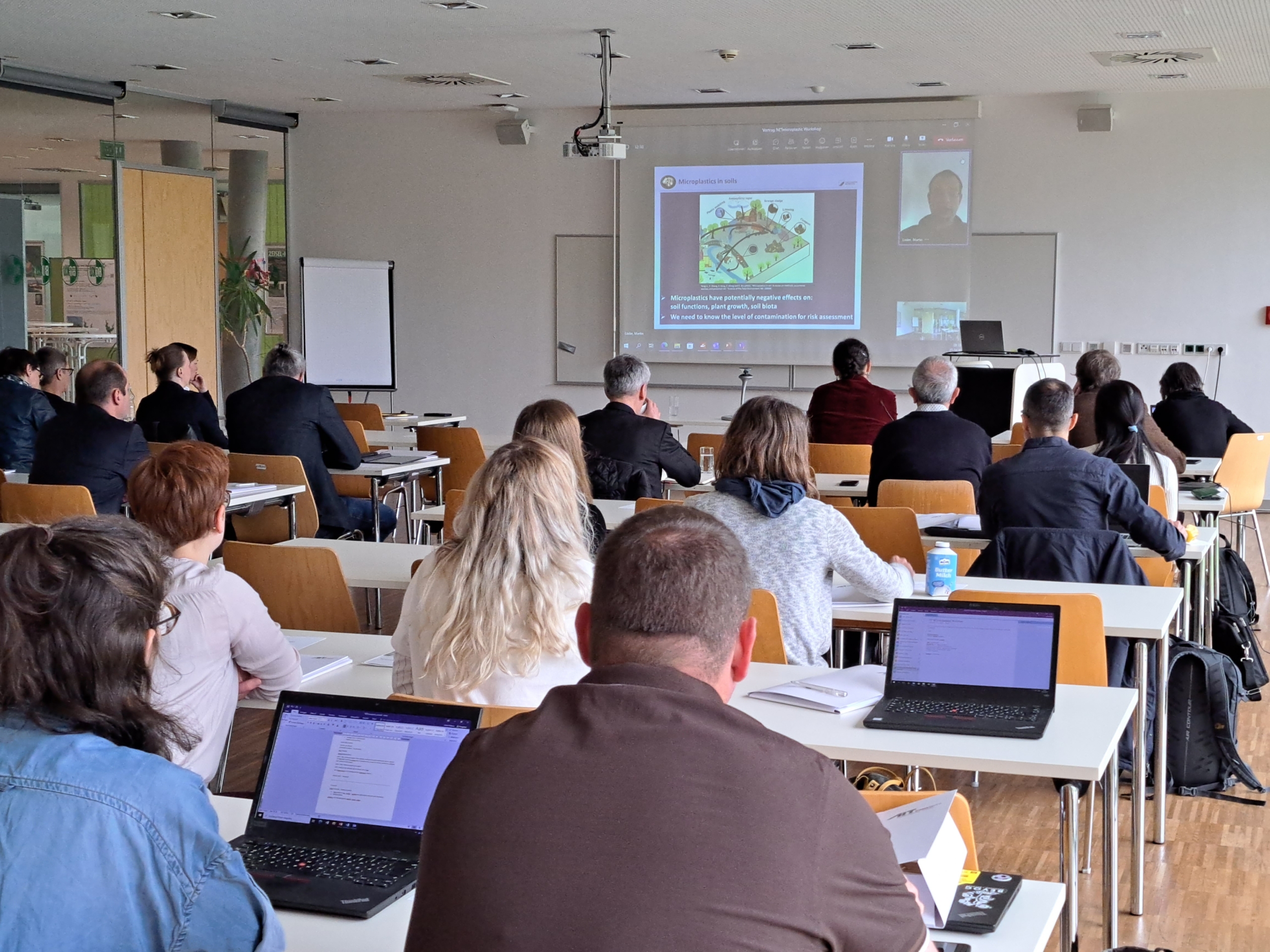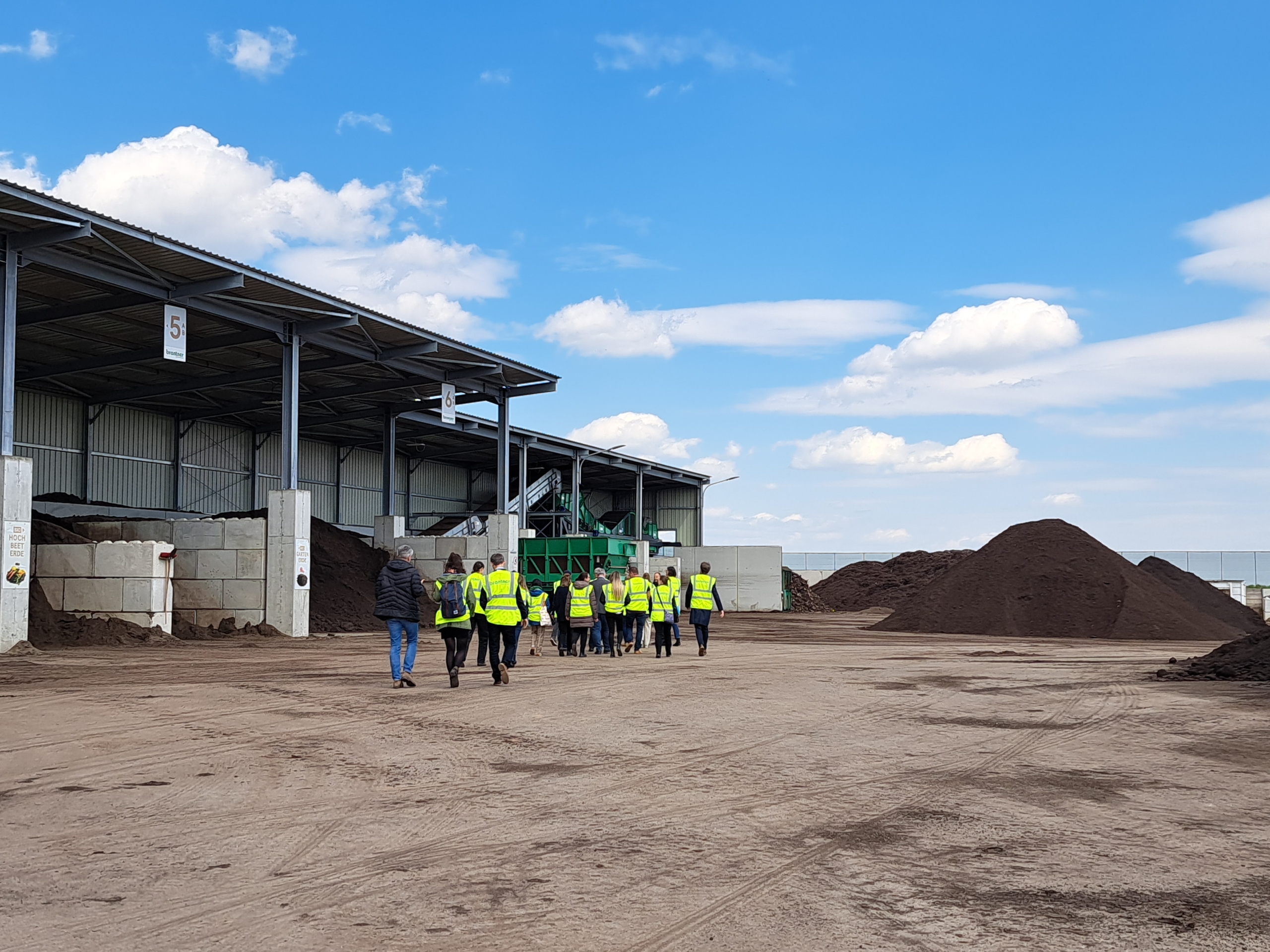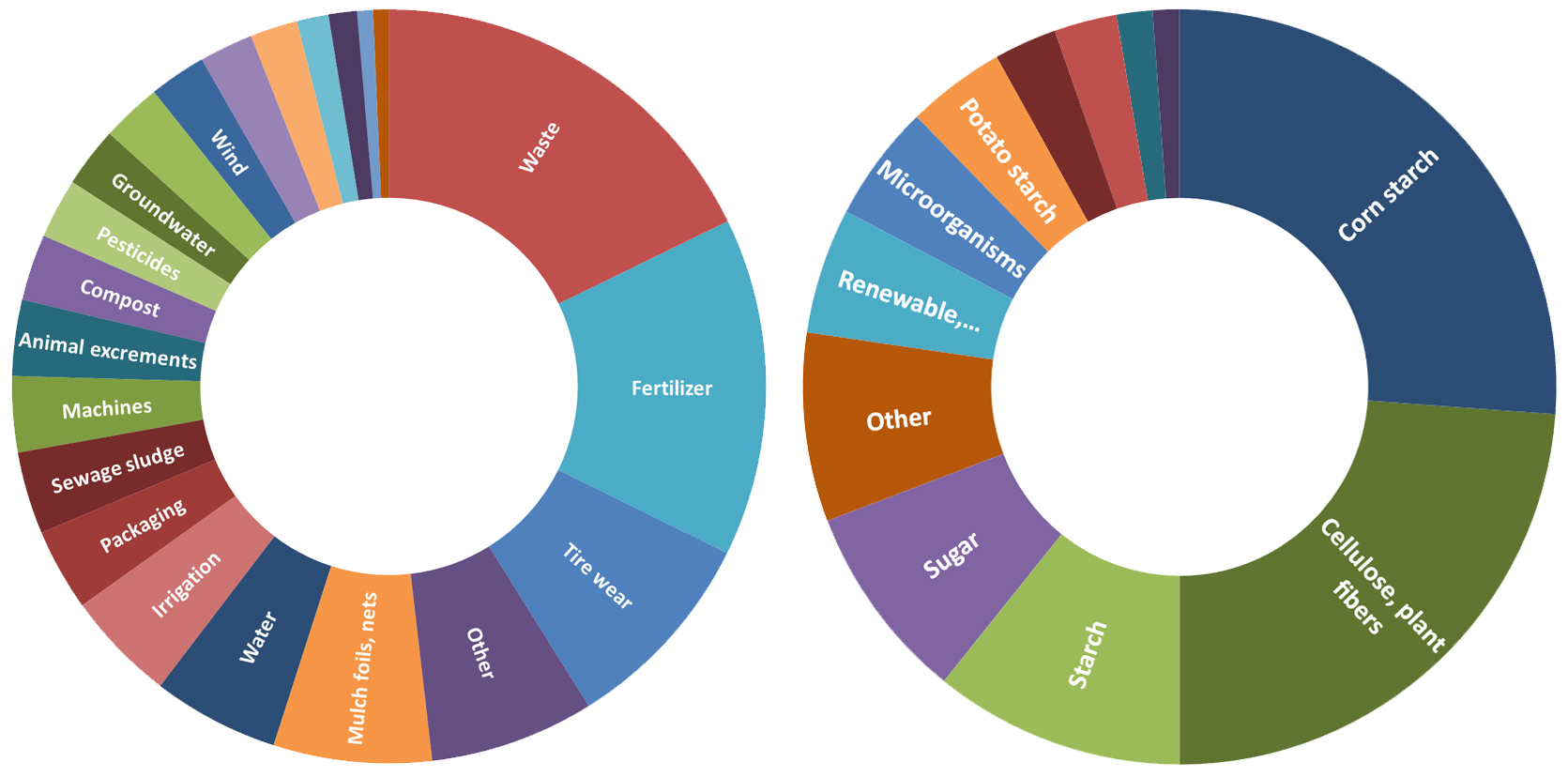Newsletter no. 2
The newsletter covers a report on our first Stakeholder event held last April at the UFT Tulln and gives an overview on our plans for the near future. Also, we report first results from our student survey and give an outlook on activities which are currently in planning.
Report on the 1st NETmicroplastic Stakeholder event

On April 27, NETmicroplastic coordinator Claudia Preininger hosted a full-day stakeholder workshop on the AIT/UFT campus in Tulln, where relevant stakeholders and the interested public shared their knowledge and ideas on the use and fate of (micro)plastics in agriculture. There, 35 attendees (14 representing the core NETmicroplastic network) were engaging in expert talks and interactive discussions around potential impacts of microplastic on the environment and human health. Another focus was on promoting innovation in the fields of classical polymeric and new materials.
In her welcoming speech, C. Preininger affirmed that stakeholder involvement is key to NETmicroplastic’s success. She emphasized on the importance of many different stakeholder groups working together in the network, all aiming at finding answers and solutions to issues around “microplastics in soil”. Indeed, multi-actor engagement is needed for granting that new technology approaches and management strategies will gain broad acceptance in society.
The various facets of NETmicroplastic were amply reflected in the workshop program. Keynote presentations were given by Martin Löder, University of Bayreuth, on “Microplastic contamination in soil: Analytical Methods and the Role of Organic Fertilizers” and by Friedrich von Hesler, Novamont, on “Biodegradable Mulch Film: Properties, Applications and Challenges in Marketing.” The presentation given by Helene Walch (Environment Agency Austria) addressed the occurrence of microplastics in agriculture. In addition, there were talks on plastic emissions (Daniel Steinitz, Bündnis Mikroplastikfrei) and plastic compounds derived from tire wear (Thorsten Hüffer, University of Vienna). In line with NETmicroplastic’s focus on fruit and wine production, Franz Rosner (HBLA und Bundesamt für Wein- und Obstbau) gave a comprehensive view on the use of plastics in viticulture and fruit growing. Ferran Marti Ferrer’s (Aimplas) talk on “The main advantages of the use of biopolymers in plasticulture products” addressed multiple technological and usage aspects of plastic material. Finally, the report by Heide Spiegel (AGES) & Ildiko Heim (Fibl Austria) showed field trials and surveys on the occurrence of microplastics.
A special highlight of the day was a joint visit to the composting plant of Brantner Österreich GmbH in Krems-Gneixendorf. There, workshop participants could take a tour on the company grounds and gather cluse-up sights of the processes of sorting and up-piling of plastic items contained in household compost waste. First-hand impressions from the excursion were brought back at a World Café-session covering the NETmicroplastic focus topics “Technology”, “Environment” and “Education” in relation to microplastics in soil. Vivid discussions arose on issues such as linking environment and technology and developing viable and sustainable solutions regarding the use of plastics in agriculture. Regarding the properties of plastics, it was considered important to evaluate bioplastics as well as conventional plastics in terms of biological impact and degradability in soil. Workshop participants saw an urgent need for new (polymeric) materials that may replace poorly degradable materials entering the soil in present-day practices. The final wrap-up once again pointed towards efforts needed for increasing awareness-raising about microplastics and for preserving soil health. The workshop was brought to a close with fine wine and snacks in a relaxed atmosphere.
The collective results obtained from the workshop are presently feeding into a stakeholder mapping. Moreover, they set the frame for running a national stakeholder survey among farmers, which is already close to kick-start. Stay tuned for NETmicroplastic’s next steps in its endeavours towards active stakeholder engagement and interaction.

Take a snapshot of the students´ survey results
From March 22 to May 13 a survey was undertaken among students of Austrian universities. 386 students (52% Lower Austria, 31% Vienna, 10% Upper Austria) participated, 316 of them completed the survey, one third of them using a smartphone, two thirds the desktop. 98% of the students have heard about microplastic before, mainly in the connex of water and sea pollution. This also correlates well with their estimated knowledge which is rated highest for microplastic in water/river/sea and lowest for agriculture. The main source of information was internet (81%) followed by TV (67%), friends & family (44%) and radio (38%). Scientific journals (37%) and teaching lessons/courses (31%) contribute to a lesser content. In the students´ opinion microplastic in soil mainly comes from plastic waste (18%), but also from fertilizer use (15%) and tire wear (9%) (graphic left).
54% of the students believe that microplastic is generally very harmful, especially in water/river/sea (82%) and agriculture (64%) compared to 40% and 31% in cosmetics and textiles.
37% of the participants have heard about bioplastic before and 18% believe that bioplastic is less harmful than conventional plastic. 87% consider enhanced biodegradability the main benefit of bioplastic. Most students believe that starch is the main source for the production of bioplastic (graphic on the right).

Mini-reports of past events with participation of NETmicroplastic core-network partners
The Microplastics Scientific Workshop (Amsterdam, 8-9 May 2023) organised by Plastics Europe (https://plasticseurope.org) was a packed programme with representatives of many great and ambitious research projects such as Brigid, microOne, MINAGRIS, LABPLAS, MOMENTUM and CUSP. Efforts were made to build bridges to understand, assess and deal with (micro)plastics for human and environmental health. Conversing between industry, researchers, government and non-governmental representations was a good first step forward in addressing this societal issue.
The 33rd SETAC Europe was held from 30 April, 2023 to 4 May, 2023 in Dublin with microplastic being one of the main research topics discussed. Beside the ecotoxicity, LCA and detection of microplastics also the fate and behaviour of microplastic particles in soil were discussed and many results of finalized and ongoing projects (e.g., Papillons, https://www.papillons-h2020.eu) were presented in platform and poster presentations. The lack of harmonized preparation and detection methods and due to this the lack of comparability of different data was one major point which was often addressed.
Our plans and activities
With the support of the Agricultural Chamber of Lower Austria we are actually running a survey in Austria that aims to elucidate the use and experience of farmers with plastic products in different cultivation systems. First results will be published in our third newsletter.
In November 2023 we will organize a webinar on microplastic in compost with experts on waste management, recycling and circularity from industry and university. Focus will be on processing and separation techniques and the correct use of organic waste bins. More details in the third newsletter.
That’s all (for now)
We wish you a happy summer!



